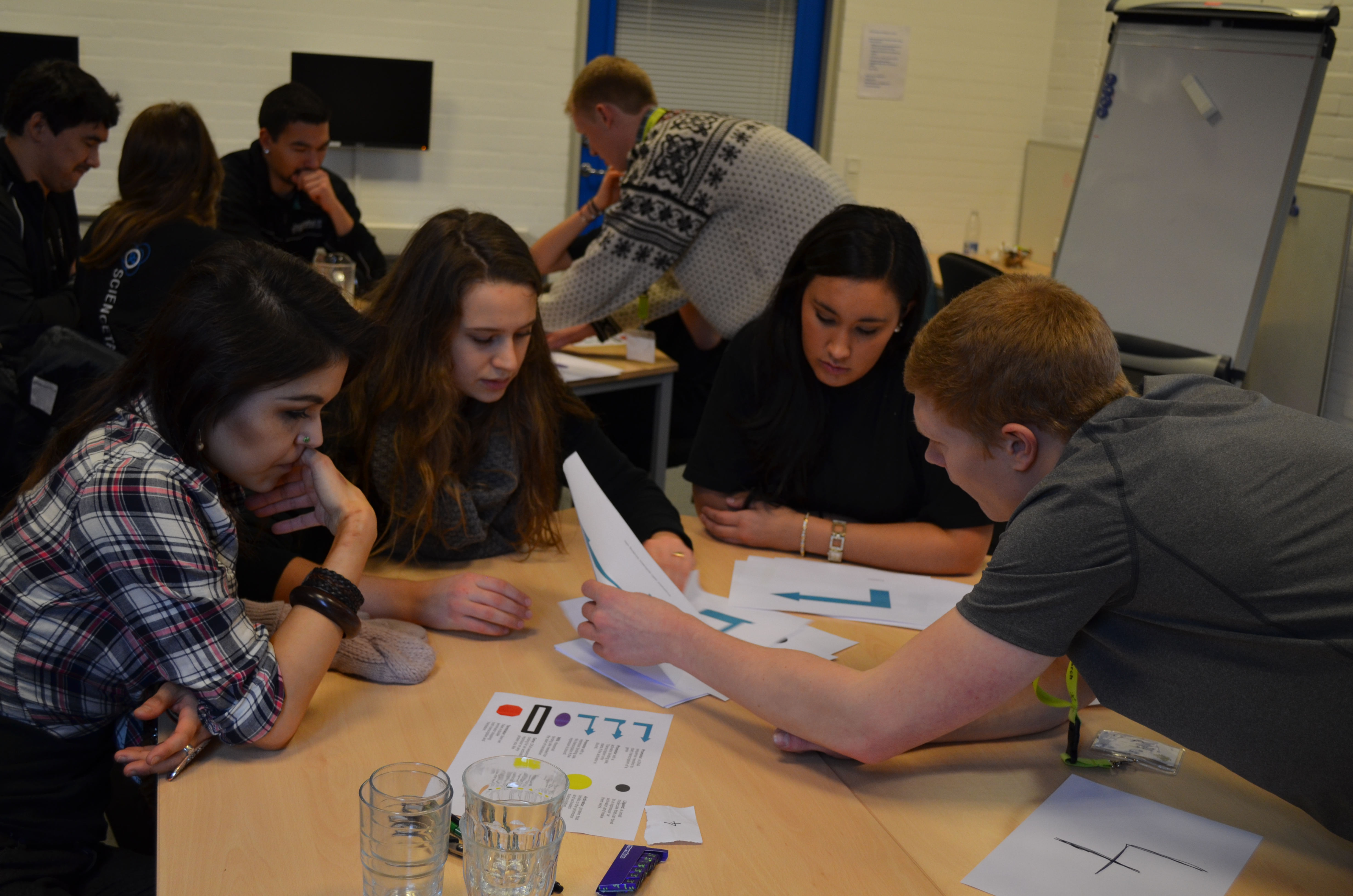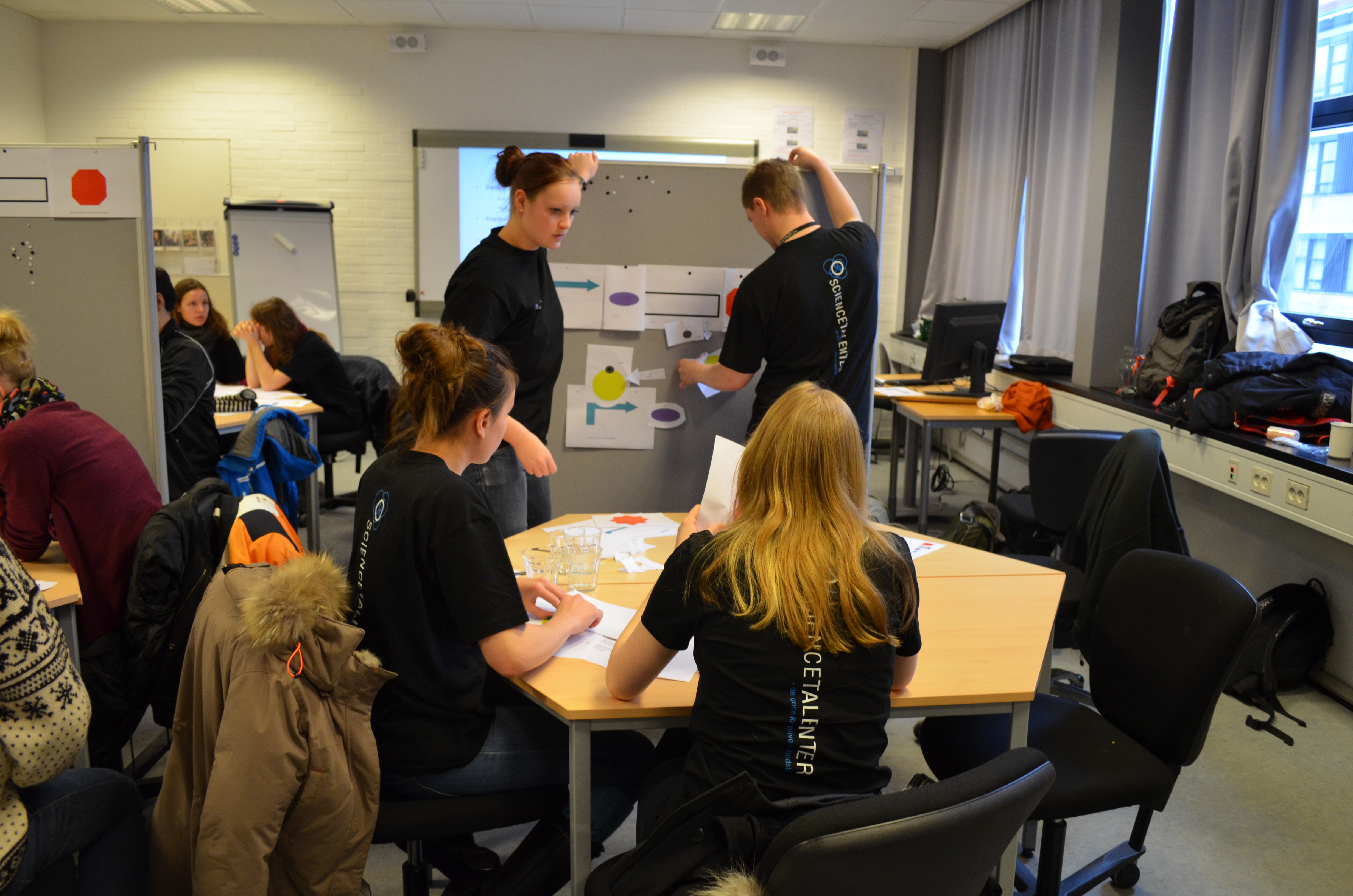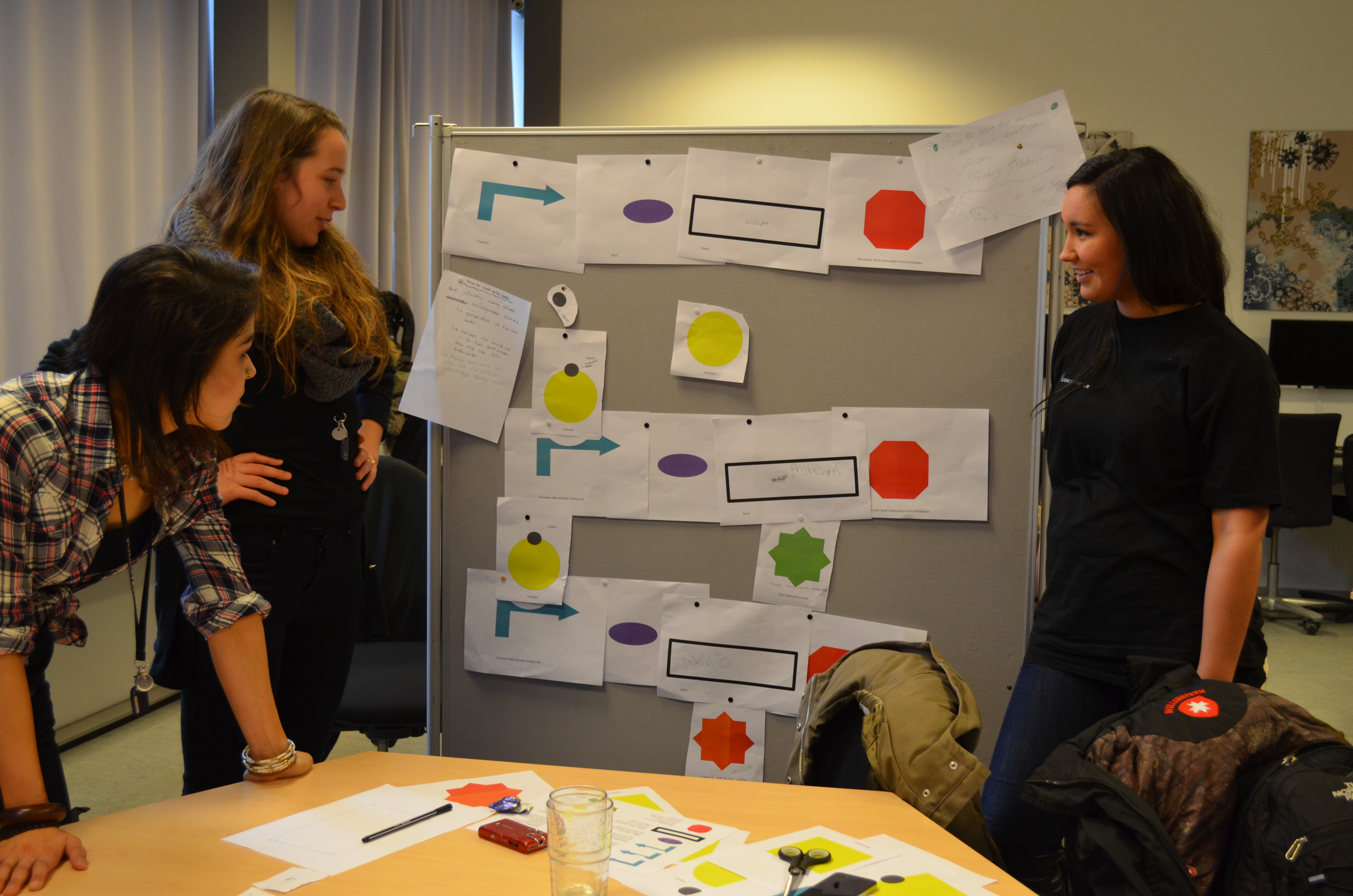Team:DTU-Denmark/High School Outreach
From 2013.igem.org
(→High School Outreach) |
|||
| Line 4: | Line 4: | ||
==High School Outreach== | ==High School Outreach== | ||
| - | To inform high school students about synthetic biology in general and our project in particular we conducted two workshops and invited students to DTU. For the first workshop our guests were the "Science Talents", a selected group of 16 talented high schoolers from both Greenland and Denmark. The second workshop was given in front of 20 danish lifescience students and 11 international students from Norway, China and the Netherlands. | + | To inform high school students about synthetic biology in general and our project in particular we conducted two workshops and invited students to DTU. For the first workshop our guests were the "Science Talents", a selected group of 16 talented high schoolers from both Greenland and Denmark. The second workshop was given in front of 20 danish lifescience students and 11 international students from Norway, Hong Kong SAR, China (PRC) and the Netherlands. |
[[File:Or_29_01_1.JPG|300px|thumb|left|A team member explaining the task to the students.]] | [[File:Or_29_01_1.JPG|300px|thumb|left|A team member explaining the task to the students.]] | ||
Revision as of 09:44, 13 August 2013
High School Outreach
To inform high school students about synthetic biology in general and our project in particular we conducted two workshops and invited students to DTU. For the first workshop our guests were the "Science Talents", a selected group of 16 talented high schoolers from both Greenland and Denmark. The second workshop was given in front of 20 danish lifescience students and 11 international students from Norway, Hong Kong SAR, China (PRC) and the Netherlands.
The workshops consisted of three parts: Firstly a theoretical part in which we gave a lecture about the principles of synthetic biology and iGEM. Specifically we introduced the idea of biological parts and how they can be combined to create systems that help solve problems of our time. To illustrate this point we presented two iGEM projects from last year.
The lecture was followed by a practical part in which the students formed small groups and did a hands-on exercise. In this exercise we gave them parts and let them build biological systems to solve a problem of their own choice.
The workshops concluded with the student groups explaining their systems to each other in short presentations.
 "
"







